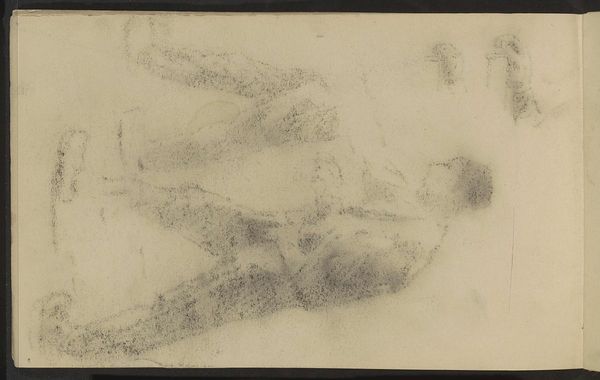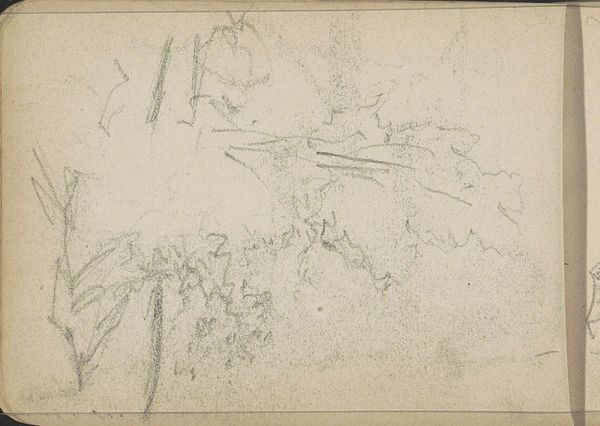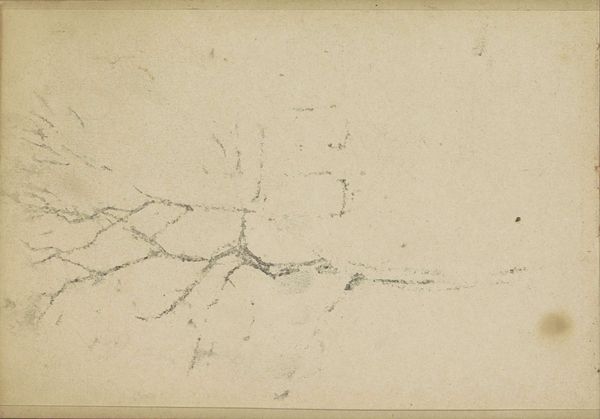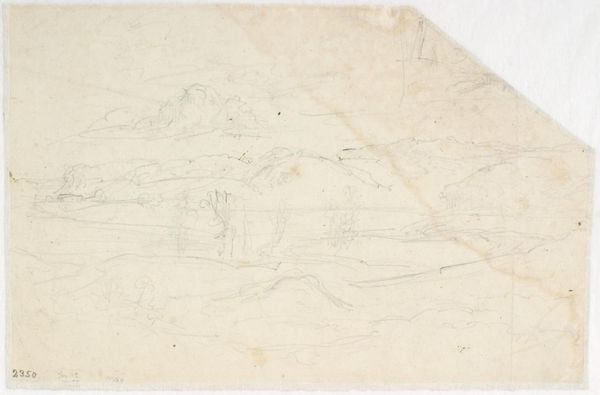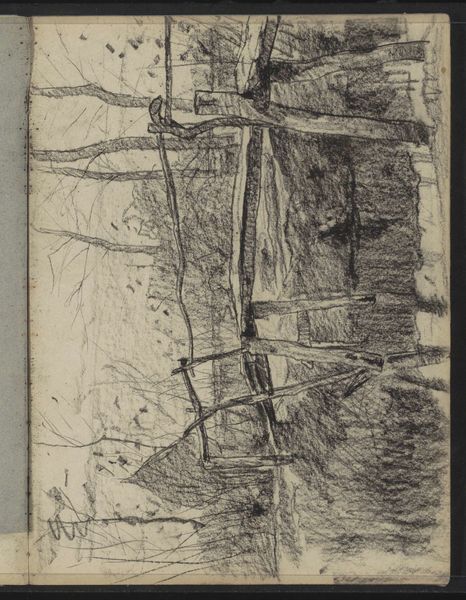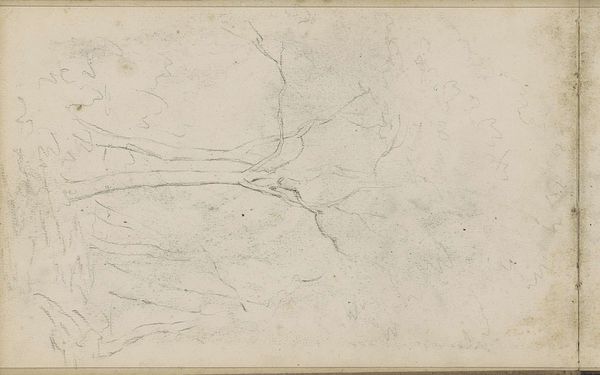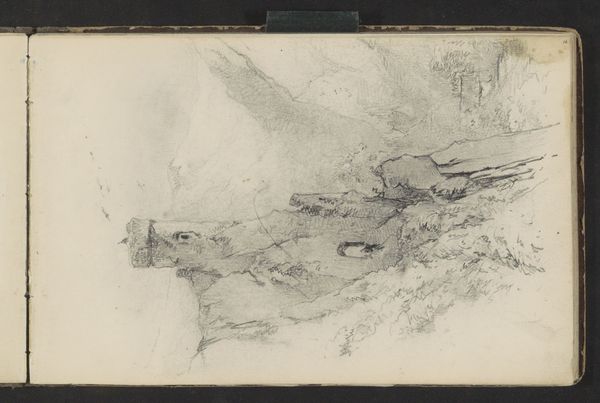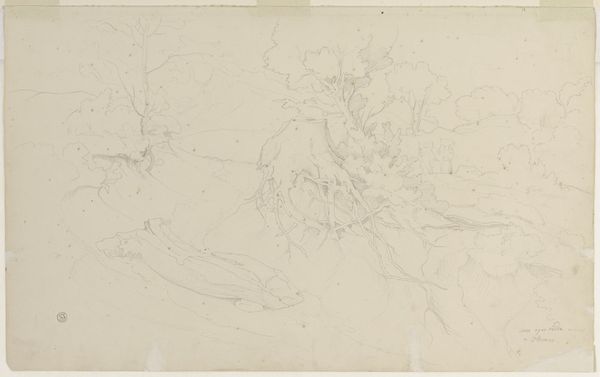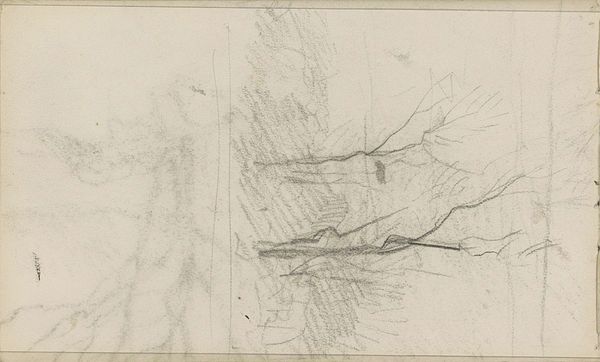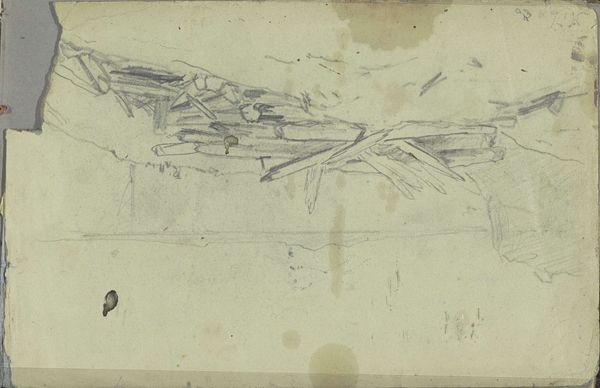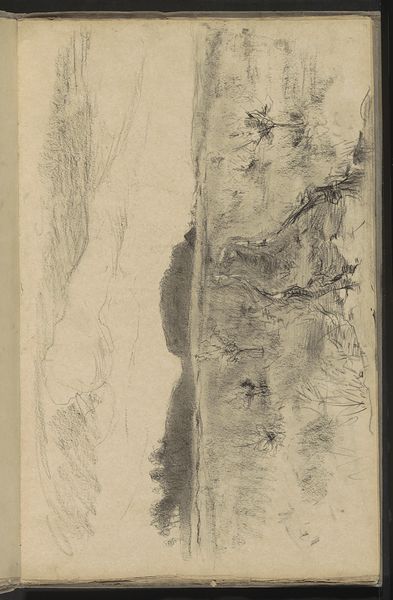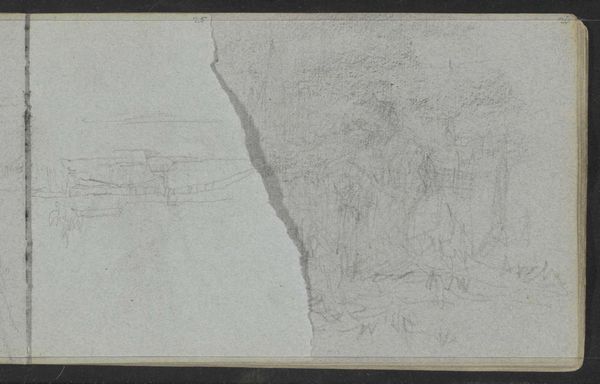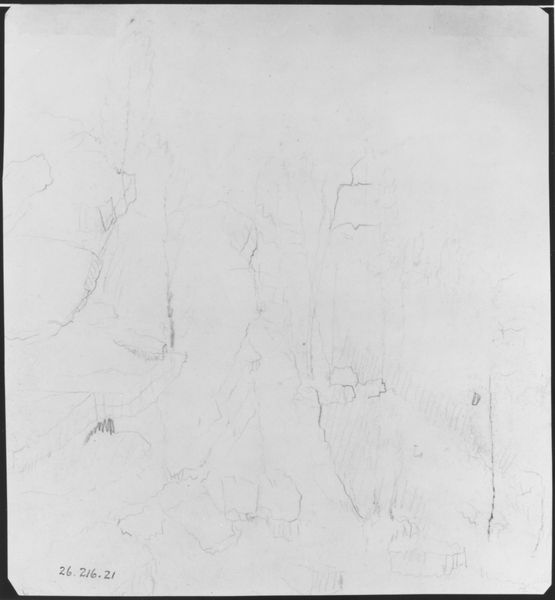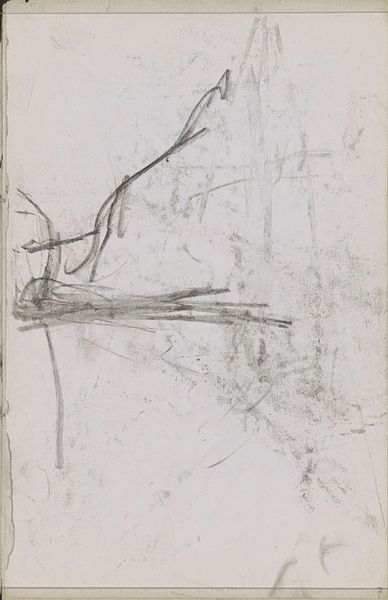
drawing, pencil
#
drawing
#
landscape
#
pencil
#
realism
Dimensions: 266 mm (height) x 202 mm (width) (bladmaal)
Editor: Here we have Fritz Melbye's "Trees in a Forest," a pencil drawing from 1855, part of a sketchbook and continuing on page 24. It's a study, really, a quickly rendered landscape... it feels incredibly intimate. What strikes you when you look at this drawing? Curator: Well, considering the date, 1855, it's interesting to place this sketch within the broader context of art's role in reflecting a growing sense of national identity, especially in Denmark. Landscape art, even a quick sketch like this, contributed to a sense of place, a visual vocabulary of the homeland. Editor: So you're saying the sketch of the trees has to do with something bigger than just drawing some trees? Curator: Exactly. The mid-19th century saw landscape art playing a crucial role in constructing and celebrating national identity. Artists weren't just painting pretty pictures; they were visually defining what it meant to be Danish, to belong to that particular landscape. How do you think this ties to its realism? Editor: It's not idealized, I suppose. It's a patch of trees, maybe an unkept place... Curator: Precisely. And think about the materiality – a sketchbook, a humble pencil. This was accessible. Art became a tool accessible and impactful for social construction. Melbye, through what looks like a simple study, engages in that conversation. It almost gives permission to his audience. Editor: It's fascinating to consider such a simple drawing in that way. It opens up so many possibilities. Curator: Indeed. Seeing beyond the immediate subject, looking at the drawing through the lens of social and cultural forces, that's where the real richness lies, don't you agree? Editor: Absolutely. I'll never look at landscape sketches the same way again. Thanks!
Comments
No comments
Be the first to comment and join the conversation on the ultimate creative platform.
